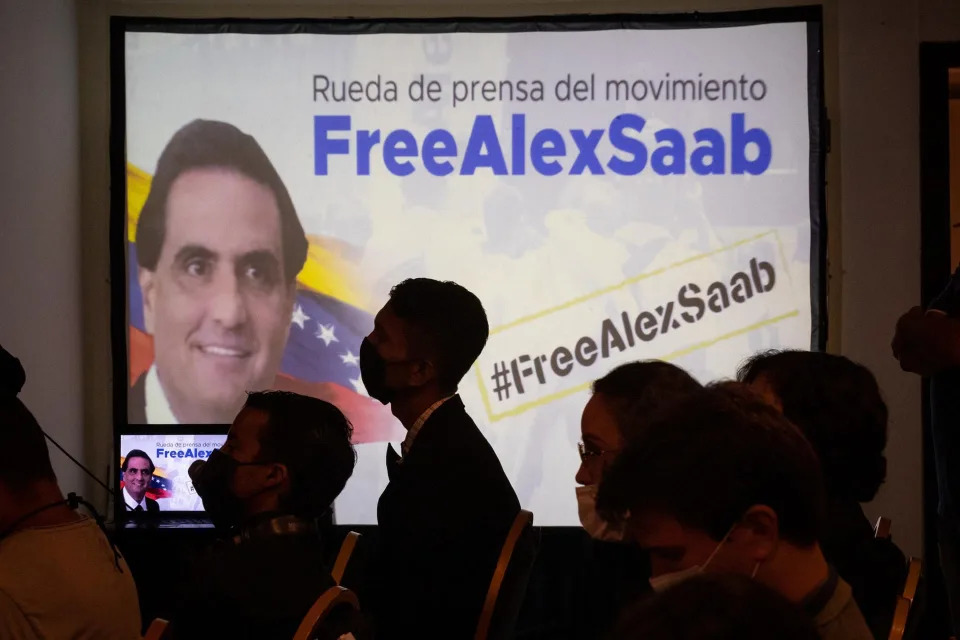The businessman Alex Saab, considered the figurehead of the president of Venezuela, Nicolás Maduro, will serve a year in prison in the United States on October 16 without a date for the start of his trial for money laundering and amid speculation about whether he is the subject of negotiations between the two countries.
The start of the trial of this businessman of Lebanese origin born in Colombia and nationalized Venezuelan for conspiracy to launder money was initially scheduled for today, October 11, but was postponed without a date.
It is unknown if those who a year ago proclaimed that Saab was going to reveal Maduro’s secrets to the US authorities were right, since he has not revealed anything about it.
However, some interesting things have been known since October 16, 2021, such as that Saab cooperated with the US for a year “proactively” giving information about its illicit activities and contracts with the Government of Venezuela and that He was going to surrender to the American Justice.
The papers also indicate that in 2016, represented by an American and a Colombian lawyer, Saab met with DEA and FBI agents in Bogotá.
A TANGLED AND DELAYED JUDGMENT
Until now, the process against Saab is focused on elucidating whether, as the defense alleges, he held a position in Venezuela with diplomatic immunity, which, if accepted by the court headed by Judge Robert N. Scola, could free him from trial.
Last May a US appeals court rejected an appeal on the grounds of immunity presented by Saab and sent the case to the court of first instance in Miami.
Saab, 50, was extradited to the US on October 16, 2021 from Cape Verde, a former Portuguese colony in West Africa where he was arrested in 2020 following an international arrest warrant requested by the US justice .
According to the indictment, between 2011 and at least 2015, Saab and his partner Álvaro Pulido, who is at large, conspired with others to launder the proceeds of a corruption network based on bribes aimed at obtaining contracts to carry out public projects and system fraud. foreign exchange control in Venezuela.
Saab and Pulido are accused of transferring from Venezuela, through the US, approximately 350 million dollars to accounts they owned or controlled in other countries, according to the Prosecutor’s Office.
The businessman pleaded “not guilty” in November 2021 and faces a sentence of about 20 years.
On February 28, President Maduro said in a virtual intervention before the United Nations Human Rights Council that the Saab trial in the US “is riddled with serious vices and aberrant distortions.”
The “kidnapping” of Saab was the reason that the Venezuelan government gave for suspending the dialogue it was holding in Mexico with the opposition in October last year.
GUESSES AND CHANGES
In the year since Saab’s arrival in Miami there have been some signs of a rapprochement between the United States and Venezuela.
In May, the government of President Joseph Biden announced that, at the request of the Venezuelan opposition, it was going to withdraw some economic sanctions against Venezuela, to allow the oil company Chevron to negotiate with the state-owned PDVSA “the terms of possible future activities” in the South American country. .
However, Washington made it clear that this measure “will not mean any increase in the regime’s income” and that it does not entail a change in policies regarding Venezuela and warned that it was willing to tighten sanctions against that country if it sees reasons for it.
On October 1 came the surprise of the release of two nephews of Maduro’s wife, Cilia Flores, who had been sentenced to 18 years in prison for drug trafficking in the US, which were exchanged for seven Americans imprisoned without trial in Venezuela.
Venezuelan exiles in the US cried out in heaven for that decision that the Biden Administration called “difficult” and “painful.”
In addition, some opponents said that Saab was really the one Maduro wanted back home, such as Gustavo Tarre, representative to the OAS of Juan Guaidó, whom the US considers interim president of Venezuela since 2018.
In an interview published by Miami’s Diario de las Américas, Tarre, who was prevented from participating in the recent OAS meeting in Lima, said that the Maduro government proposed to the US the release of all political prisoners in Venezuela in exchange for by Alex Saab.
According to the Voice of America, a US government broadcaster, an official who spoke anonymously with journalists after the release of Maduro’s nephews on October 1 was asked if the release of Alex Saab was considered and replied to put the question to the Department of Justice.

